Back in the ’90s, retail managers used to be fierce—like, yell at you and make you cry fierce. Retail was a tough business, and you had to prove that you could get knocked down, take the heat, and get back up. If the managers didn’t yell at you, a customer would.
Despite all of this, I was determined to prove I could do it.
Determined is not a strong enough word. I was makeup-on, sink my teeth in, knew I could do this, teach me everything, kind of a student of retail. I had to know every last detail, how it all worked, and I wanted more than anything to prove I was capable.
So, I did.
Over the next twenty-five years, I learned it all. I worked for a handful of major retailers, became a store leader, and ran high-volume buildings with large teams.
One of the industry’s biggest mistakes is in leadership training. Here’s why and what they need to start doing better.
As I worked my way up in the industry, companies pulled back on resources. Raises were meager, and payroll was always in short supply. Eventually, CFOs came looking for leadership training programs. Those were probably a waste of money, right?
Wrong.
After two decades of slashing training and development, retail companies began to realize that no one was ready to step into CEO roles because they hadn’t trained anyone to do it. Yes, the industry changed with the rise of e-commerce, but good leadership is about navigating change and weathering tough times. If you show people how to do that, they can communicate, partner with other critical thinkers, and find the best way to move forward.
That’s what leadership is.
Retail companies must establish leadership training for support managers early on– because the current plan could use some improvements. If an employee is reliable and has a good work ethic, the company often promotes them to a supervisory role—with zero training.
Store leaders aren’t usually given any training hours, so they show the new person how to count out the registers at night, set the alarm, and lock the door. That’s it. New managers are not taught about leadership, conflict management, or critical thinking.
Soon enough, this new support manager will be working her way up through the ranks of the store because she’s proved she can follow directions and secure the deposit at night. The first leadership training she ever gets will probably be when she gets the role of store manager—if she even gets training at all.
Companies need to invest in training programs and have managers begin before they ever give them keys to a building.
Leadership development does much more than prepare people to lead others. It gives you tools to navigate an ever-changing environment.
It reveals your strengths
I was rarely told when I did something right at work. No news was good news. If I heard about it, I’d done it wrong. When I stepped into leadership, I said “Thank you,” a lot. I told people what they’d done right because I never heard it.
When people go through training and development programs and learn how to communicate better with their teams, they’re shown how to deliver the right message at the right time. They’re shown how praise equals investment and motivation. People will not continue to show up for a manager that leads with fear and intimidation.
It reveals your blind spots
No one is perfect in every aspect of their job. I’m not good at feelings. I understand people have them, and I want to respect that, but all I want to know is, “Are you showing up today or not?” Because that determines my next steps. See how that could go sideways quickly?
I’m aware of my blind spots, so I take extra care. I ask people what they need. I allow them space. I ensure that other leaders on my team are excellent at connecting, motivating, and being interested in others. I like to be connected, and I love working with people, but I excel in planning, forecasting, and operations.
Leadership training teaches you about yourself
This knowledge makes you a better manager and team member, and it helps you see how to use your strengths to move up. It teaches you about other leadership styles, so you’re better equipped to be flexible and work with others.
How often do we get annoyed with the way other people work? It’s likely often. When I observed employees on the sales floor chatting and not moving fast enough, I got frustrated. My mind was always in “operations mode,” thinking about all we had to get done.
When I learned that my other managers led by talking and connecting, it didn’t bother me as much. I also knew I needed them to do that because it wasn’t one of my strengths. So, I’d let the chit-chatting go a little bit. It was way more fun for people to work with me this way.
Excellent leadership training allowed me to be more fluid and show people grace, which fostered an environment where people could contribute, grow, and be themselves.
A call for change
The retail industry needs to innovate. There’s been this short-sighted view for too long. Companies only cared about saving money. Look where that got them. Twenty years later, they can’t find anyone to run the company.
When we train people early on, we show them their potential, we show them that we believe in them, and we show them that we value them. We also ensure that we have people to run the company in the future.
Every time I came out of a leadership training, I was so excited that I wanted to run back to my store and share everything I’d learned. I couldn’t wait!
Life is all about education and community. When we ensure these ingredients are present in our jobs, we remain inspired and committed. Being a catalyst for someone else’s success is the highest honor a leader can have.
The retail industry will truly begin to thrive when it invests in training and development, listens to store leaders, and sees the next decade as an opportunity to create outstanding shopping experiences with dedicated, enthusiastic teams.
I cannot wait to see retail flourish.
This article is part of the Precision Matters series. In the series, HR and L&D leaders share their expert strategies for utilizing Learning & Development tools to craft precise, impactful business outcomes and foster organizational growth.
Ready to turn insights into impact?


















